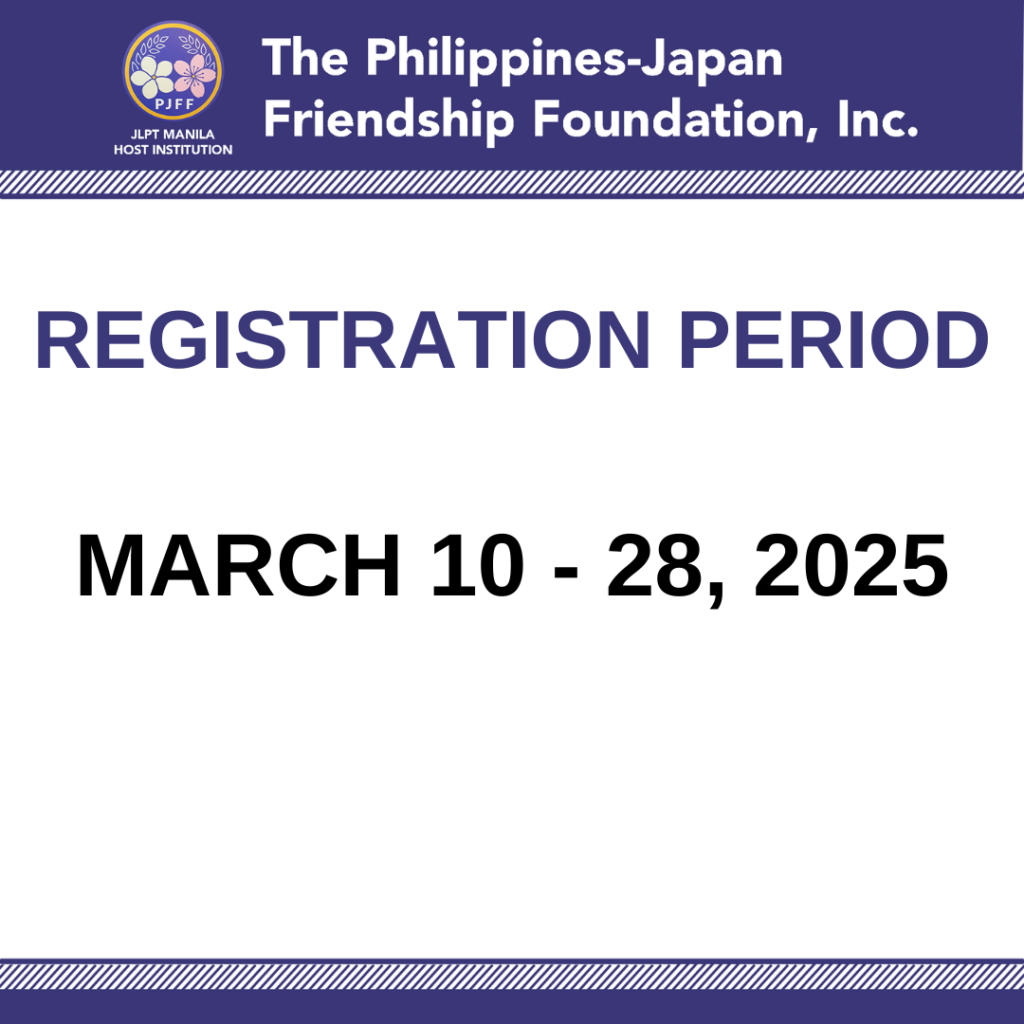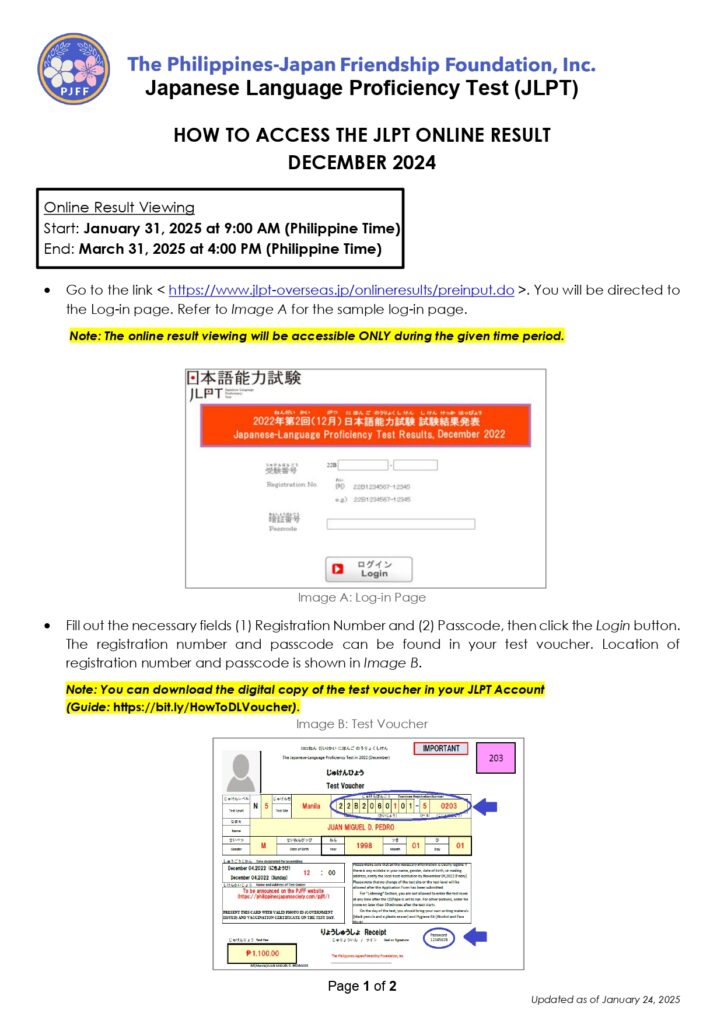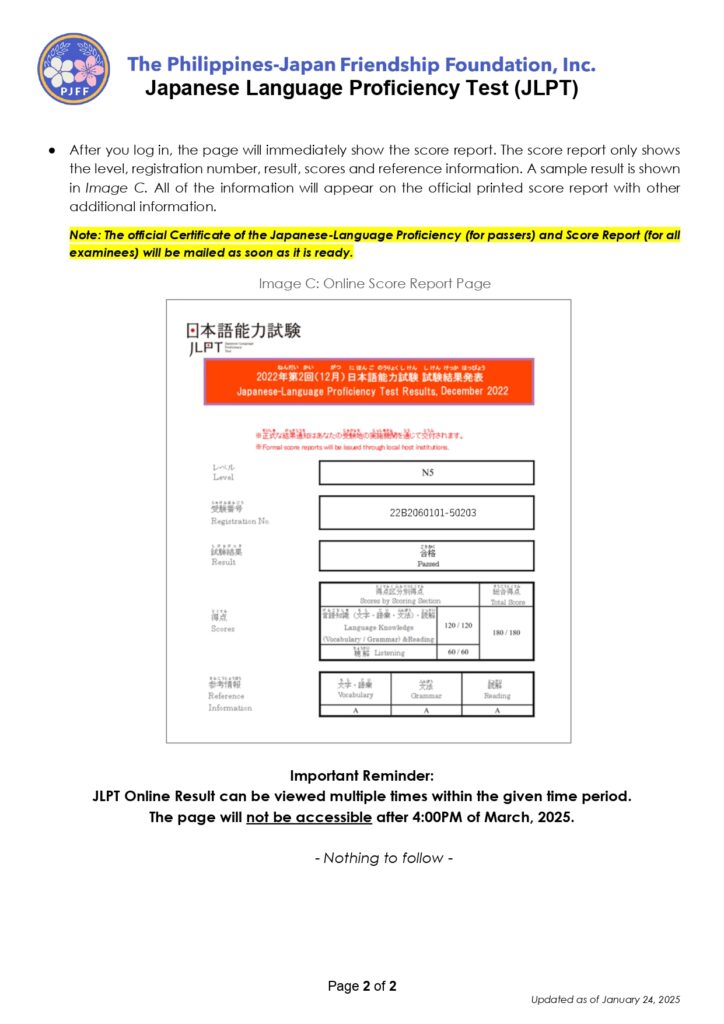The registration period for the July 2025 Japanese Language Proficiency Test (JLPT) will start from March 10, 2025 until March 28, 2025. To be eligible taking the test, you need to submit your JLPT application form.
What are the requirements in completing the form? Watch the video (Step 2: How to Complete the JLPT Application Form)!
Make sure to watch Step 1: How to Create a JLPT Account if you do not have an account yet.
JLPT Online System: https://jlpt-apply.jfmo.org.ph/
Follow Our Platforms to be updated!
PJFF Facebook Page: https://www.facebook.com/PJFF.PH
Instagram: https://www.instagram.com/pjff.ph/
JLPT Manila Test Site Viber Community: https://bit.ly/3W413jF






